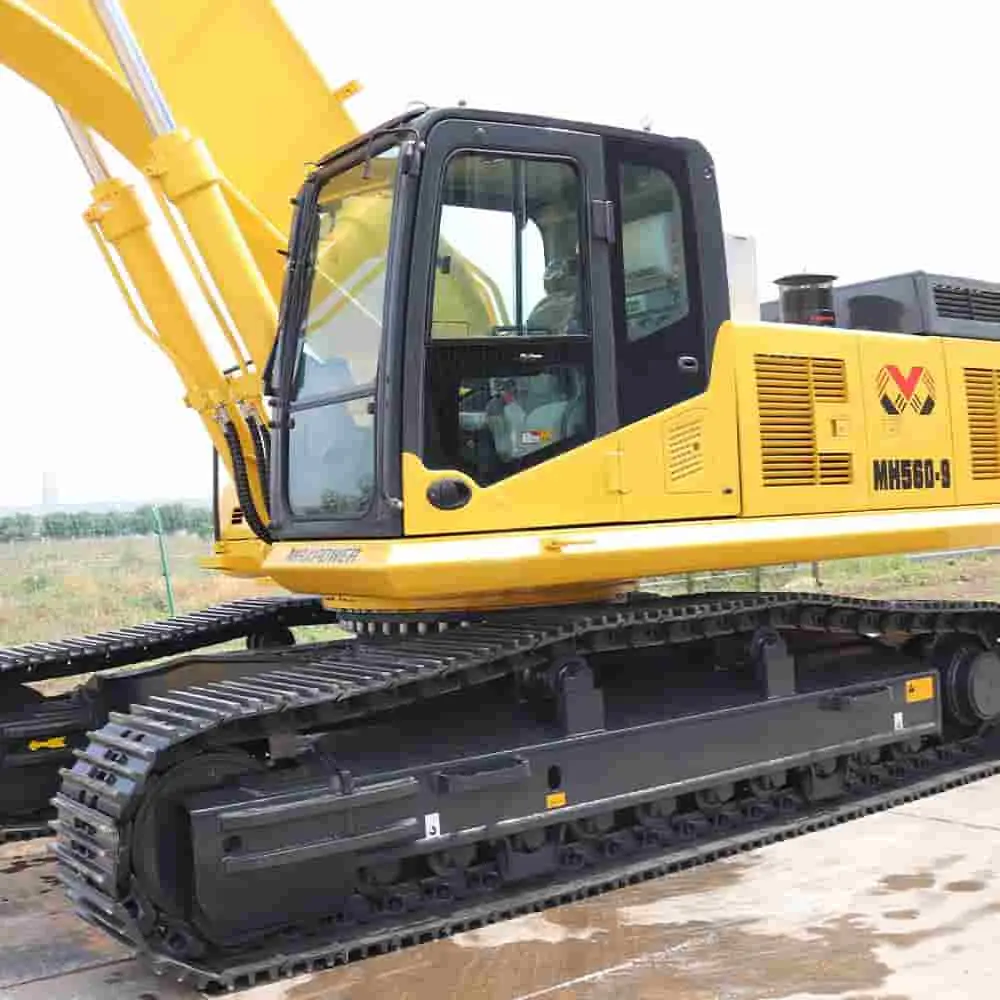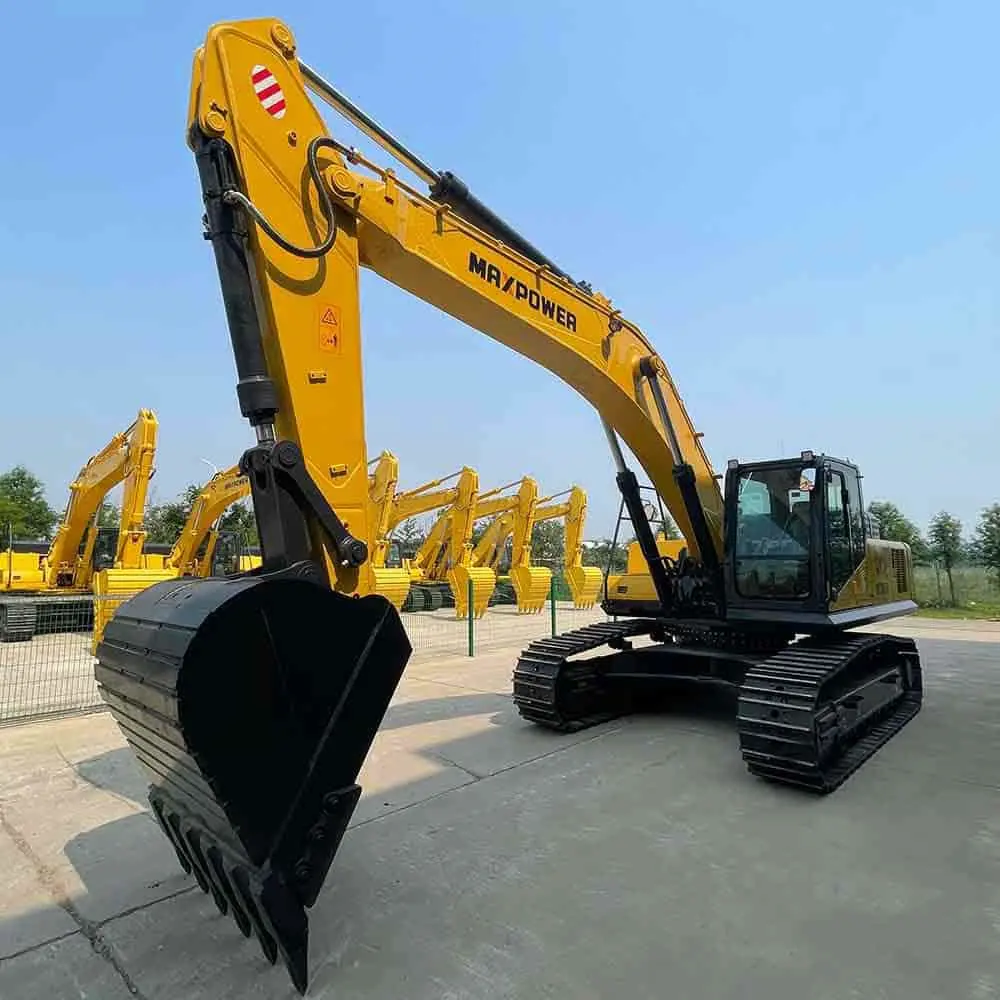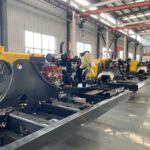Introduction
Construction excavators come in various sizes and configurations, each designed for specific tasks. From small mini excavators suitable for tight spaces to large hydraulic excavators for heavy-duty operations, the right choice depends on the project’s requirements. This guide will walk you through the factors to consider when choosing a construction excavator, the different types available, and some frequently asked questions.
Types of Construction Excavators

Understanding the different types of construction excavators is the first step in making the right choice:
Mini Excavators: Compact and versatile, suitable for confined spaces and precision work.
Hydraulic Excavators: Offer greater power and are suitable for heavy-duty digging and lifting tasks.
Crawler Excavators: Track-driven, providing better stability and traction on rough terrain.
Wheel Excavators: Faster and more mobile, ideal for moving between different job sites.
Backhoe Loaders: A combination of an excavator and a loader, offering versatility at a lower cost.
Table: Comparison of Different Types of Construction Excavators
| Feature/Type | Mini | Hydraulic | Crawler | Wheel | Backhoe Loader |
|---|---|---|---|---|---|
| Size | Small | Large | Medium | Medium | Medium |
| Power | Low | High | Medium | Medium | Medium |
| Mobility | High | Low | Low | High | High |
| Stability | Low | High | High | Low | Medium |
| Suitability | Confined spaces | Heavy-duty operations | Rough terrain | Moving between sites | Versatile use |
Factors to Consider When Choosing an Excavator
Several factors should be considered when choosing the right construction excavator:
Project Size and Scope: Larger projects may require more powerful and stable excavators.
Terrain: The type of terrain will influence whether you need a crawler or wheel excavator.
Mobility: If you need to move the excavator frequently, a wheel excavator or backhoe loader may be more suitable.
Budget: Different types of excavators have different price points and operating costs.
Operator Skill Level: Some excavators are easier to operate than others, which may be a factor if your operators are less experienced.
Benefits of Choosing the Right Excavator

Selecting the right construction excavator can bring several benefits:
Improved Efficiency: Selecting the appropriate excavator model is paramount as it directly impacts task completion efficiency and effectiveness. A well-suited excavator not only accelerates project timelines but also enhances overall productivity, ensuring tasks are executed swiftly and with precision. By choosing the right excavator tailored to the specific requirements of the project, operators can streamline operations, minimize downtime, and achieve optimal results, ultimately maximizing the return on investment and project success.
Cost Savings: Opting for an excavator that matches the scale of your project can yield cost-saving benefits in operations. By selecting the right-sized excavator, you mitigate unnecessary fuel consumption and maintenance expenses, ultimately driving down overall operating costs. This strategic choice ensures optimal efficiency and resource utilization, leading to improved project profitability and sustainability.
Enhanced Safety: Choosing the most suitable excavator model for the task at hand plays a pivotal role in mitigating potential accidents and enhancing overall safety on the site. A well-matched excavator minimizes the risk of equipment malfunctions and operator errors, promoting a secure working environment. This proactive approach to equipment selection fosters a culture of safety, ensuring smooth operations and safeguarding personnel from potential hazards.
Better Project Timelines: Utilizing the optimal excavator for your project facilitates meeting or surpassing project timelines with efficiency. By employing the appropriate excavator model, tasks are completed swiftly and accurately, minimizing delays and maximizing productivity. This strategic equipment selection ensures seamless progress, enabling projects to adhere to schedules or even finish ahead of time, enhancing overall project success and client satisfaction.
Conclusion
Choosing the right construction excavator for your project is a decision that requires careful consideration of various factors, including project size, terrain, mobility, budget, and operator skill level. By understanding the different types of excavators and their specifications, you can make an informed decision that will improve the efficiency, safety, and success of your construction project.
FAQ
What is the main difference between a crawler and a wheel excavator?
- The main difference is in their mobility and stability. Crawler excavators are more stable on rough terrain but less mobile, while wheel excavators are more mobile but less stable.
Can a backhoe loader replace a dedicated excavator?
- A backhoe loader can perform many of the same functions as a dedicated excavator, but it may not be as powerful or versatile for larger or more complex projects.
How much does a construction excavator cost?
- The cost of a construction excavator can vary widely based on its size, power, and features. It can range from tens of thousands to hundreds of thousands of dollars.
What is the average lifespan of a construction excavator?
- With proper maintenance, a construction excavator can have a lifespan of 10-15 years or more.
How do I determine the size of excavator I need for my project?
- The size of the excavator you need will depend on the scope and scale of your project, the type of tasks it will perform, and the space available on your site.







-150x150.webp)
